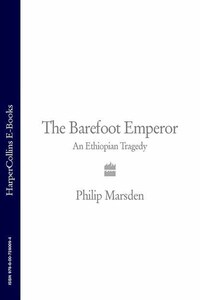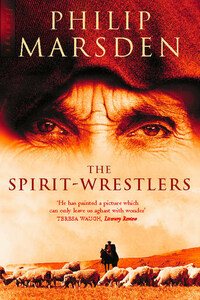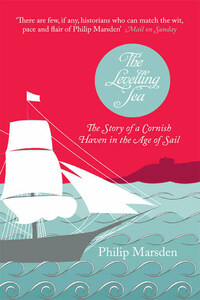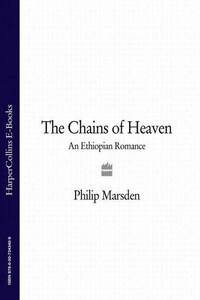‘The Adelaide? ’91. ’90 was the Prima Donna and the Bonne Julienne and a couple of others I don’t recall.
‘First few days of the year she struck, they dead days right after Christmas, been blowing two days straight, an easterly that come up the channel with a freezing mist before it. Saturday evening it veered south-east and freshened to a full gale. That easterly brought the first snow we had in years but the worst of the easterly’s always the run it brings. Damn swell you can’t do nothing with.
‘She was a big barque, the Adelaide. Steel hull and new built, headed up Liverpool with a hold full of jute. After fifteen weeks she come on land in a snowstorm. Imagine that – fifteen weeks in the heat and you come to land in a bloody snowstorm …
‘They was taking soundings when they heard the bell. They knew what that bell was. Not a man who’s sailed this coast don’t know the Cages bell when he hears it. So the master orders them round but he misses stays and in that wind and they seas he didn’t stand a chance of getting free. Just out from Hemlock Cove, they struck the edge of the reef square on.
‘We was all down at the hall that night, Freeman Rooms, listening to a speaker. Colonel’d been staying up Dormullion but the weather was so bad he couldn’t get back and he was telling us about Africa or someplace. Anyway that’s where we was when the maroons went up. No one spoke a word. We’re off like long dogs to the station and of course the whole bloody audience follow us and that poor wretched colonel’s left talking to an empty hall.
‘In they days the boat was the Eliza Jane – pulling she was, just paddles and a pair of great heavy drop keels. Couple of the launch crew heaved open the doors and the noise hit us with the wind. I never heard such a noise. The sea against the piles of the slipway and some bloody howling easterly and a biting wind with thick snow in it. The crew was picked and we checked the gear and got on board, ten of we oarsmen and the cox and a couple of others and still none of us saying a word. So we’re sitting there and each of us takes hold of the gunwale and there’s snow all around and we’re sitting waiting for the launch.
‘Cox was Sam Tyler and he was standing in the stern looking out over us and listening to the wind and trying to get the seas and it’s still not too late for him to stop. But we saw him nod to Joshua Ball and take his seat at the helm.
‘That time the slip was new, roller-slip built just six months, and Joshua Ball was on the hard below us. He took away the strops and looked down at the surf. Once he’s knocked that pin out the chain drops and there’s nothing you can do. That’s the moment you dread – once you’re gone you’re gone but it’s the waiting that gets to you and it’s his decision when to launch. Someone asks where the service’s to and Tyler says in from the Cages and we’re all thinking what’d that be like in an easterly like this.
‘Josh knocks out the pin and the boat starts on her rollers, slow at first and then faster and all of we waiting for the bows to strike. We faced astern and that night I could see old Josh at the top of the slip getting smaller, with his hammer and the chain on the ground by his feet. He had the face of the hangman watching us go out in that.
‘Well we hit the water and pulled like hell. Got through the short seas into deeper water. Wasn’t too bad in the bay. There was great big swells but long and they weren’t breaking and we soon forgot the cold pulling as we were. Once out of the bay we hit the wind full on and the seas right above us. The very first one of they seas pushed up our bows and we was looking down on the cox, then the next he was up above us like we was on a bloody seesaw.
‘At night in a sea you never know the one that’ll break and swamp you. You don’t see it – but you can hear it. At first he’s distant – then he comes full and heavy above the noise of the wind and you can hear the size of him in the sound. Then one astern, and one abeam and you never know which one’ll get you. We got one going out, broke just as we came into it, steepened up ahead of us and then the noise of the crest breaking right above us and we knew he was a big one. We lost the bows and would have gone over if the starboard crew hadn’t backed their oars. Wave washed clear over us and no one stopped pulling but the cold afterwards – you could feel every inch of yourself that was wet and our fingers locked tight around the oars so we couldn’t let go even if we wanted – and we just thought of the seamen and the ship on the rocks and we pulled harder.














